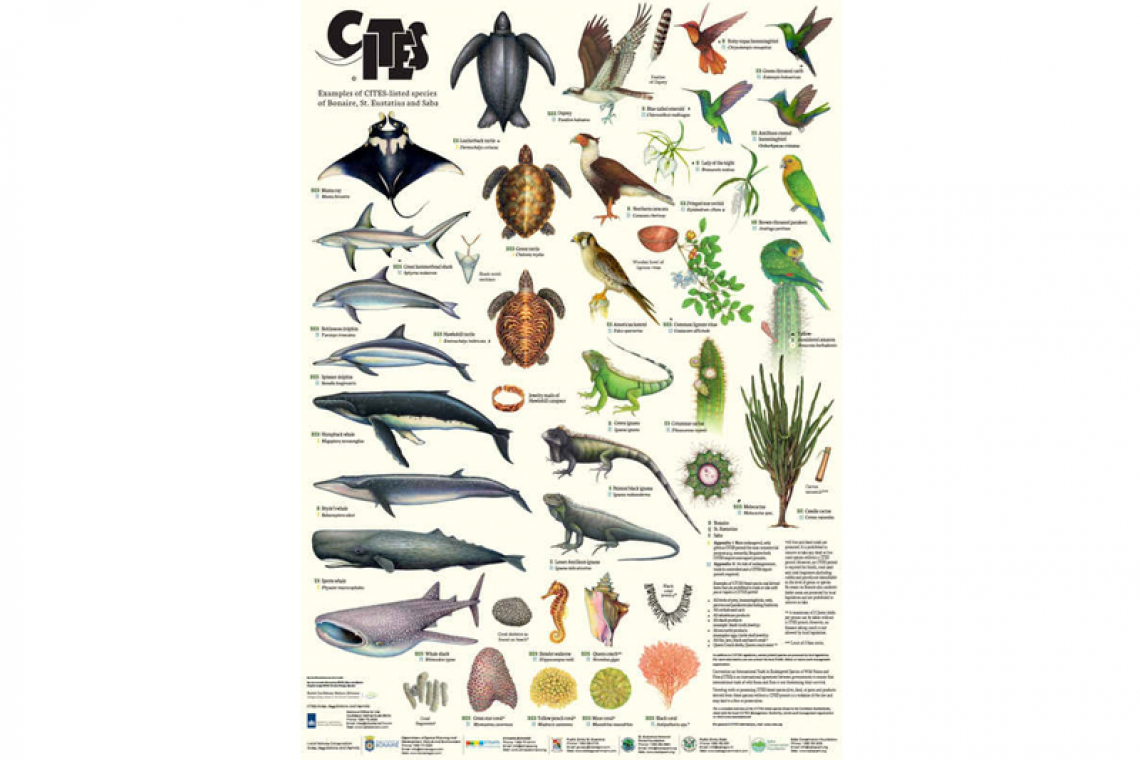Examples of protected species in Bonaire, St. Eustatius and Saba. (CITES photo)
SABA/ST. EUSTATIUS--Informational material on regulations on the international trade in endangered species of wild flora and fauna – also known as the CITES Convention – has been developed for residents and tourists in Bonaire, Saba and St. Eustatius. Posters, signs and brochures have been made in four languages – Dutch, English, Papiamentu and Spanish – by the Dutch Caribbean Nature Alliance (DCNA) by order of the Ministry of Agriculture, Nature and Food Quality (ANFQ).
These materials can be found at the airports and seaports and at government and customs offices, nature park management organisations, diving schools and hotels throughout the Caribbean Netherlands. In this way, the DCNA and ANFQ want to raise awareness about the protected status of flora and fauna in the Caribbean Netherlands, such as orchids and corals, and the prohibition on picking or taking such species.
Bonaire, Statia and Saba have a rich biodiversity. Many species are endemic to one of the islands, that is, they cannot be found anywhere else in the world. Almost 200 species living in the wild in the Caribbean Netherlands are protected by CITES. The list includes turtles, iguanas, birds of prey, various orchids, cactuses, whale species, rays and bird species.
The corals for which these islands are known – alive and dead – are also protected under CITES and can, therefore, not be taken away. In line with the CITES regulations, stricter local rules and measures may apply to conserve the biodiversity.
Exporting living and dead species included on the CITES list to another country without a permit – also from the Caribbean Netherlands to the Netherlands, and vice versa – is prohibited. These regulations also apply to taking species or objects as a gift or for one’s personal use, such as orchids, cactuses, corals, sea horses, turtles, sharks, iguanas and birds.
The regulations also apply to products made of or from these species, such as food products and exotic leatherwear, wooden sculptures, ornaments, musical instruments and local medicines.
In certain cases, exporting species or objects or taking them away is prohibited altogether. Violation of these regulations can lead to penalties and/or legal action.
The mere fact that something is for sale or found on the ground or in the sea does not mean that one is allowed to take it or that one can travel with it. When in doubt as to whether one can take a species or a product, one can contact the local CITES authority at the National Department Caribbean Netherlands RCN, the customs authorities, the public entities, or the local management organisation of the protected nature area.







